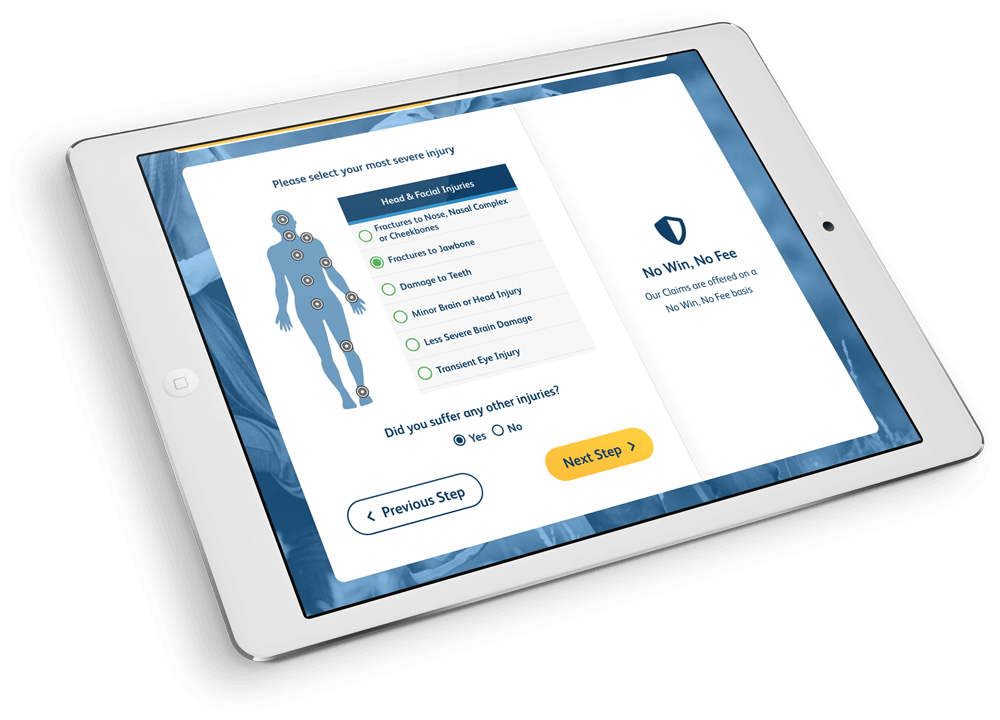WORKING FROM HOME & EMPLOYER LIABILITY: KNOW YOUR RIGHTS
The Covid-19 pandemic, and the string of national and regional lockdowns it has brought with it, has seen many UK workers switching to home working.
In fact, 46.6% of people in employment switched over to some sort of home working as a result of the first lockdown in March 2020. Whilst this number has fluctuated based on government advice, with large companies like Metro Bank announcing they will be adopting a ‘hybrid model’ of working – with employees working partly from home, and employers investing in more flexible office spaces – we can expect home working to be a part of the new normal for some time to come.
This switch over goes some way to explaining the industry-wide dip in reported accidents at work, as people are unaware of their rights when it comes to employee liability and working from home. So, what happens when you have an accident at work, whilst you’re working from home?
WHAT THE LAW STATES
Whilst the Workplace Health, Safety and Welfare regulations (1992) do not specifically encompass residential properties, it is important to remember that all employers have a duty of care to protect the health, safety and welfare of employees, whether home or office-based.
Many employers have provided workers with the appropriate tools to do their jobs at home: work laptops or desktop computers, headsets, office chairs, etc. In this case, it is the employer’s duty to ensure these are of good and safe working order, and will not present a danger to the individual.
It is also the duty of the employer to ensure the general working environment their employee is working within is suitable for the job. For example, someone who is packaging orders at home would need a sufficient amount of space for them to safely carry out their job, whereas someone who is desk bound for most of their working day will need good lighting and seating so as not to damage their eyes or back.
HOW COMPANIES CAN SUPPORT THEIR EMPLOYEES IN HOME WORKING
It is important that businesses take time to consider the risks posed by switching their employees over to home working for any amount of time. Risk assessments should be carried out at every level, from minimal risk jobs up to those that pose a more significant risk to safety. This could mean simply liaising with each individual on taking regular breaks and opening up clear lines of communication so they are able to flag to a manager if their environment is unsuitable or, on more rare occasions, having a health and safety officer safely visit the person’s home to do the necessary checks.
Niamh Wilson, head of civil litigation at Hampson Hughes Solicitors, said: “At Hampson Hughes, we’ve carried out appropriate risk assessments on our employees’ workstations, and work closely with employees to ensure they are able to continue to work from home in a safe environment.
“This includes making sure all equipment provided by the company is new and/or PAT tested, carrying out wellness check-ins to assess employee mental health, and ergonomic guidance urging people to take regular breaks and maintaining a good work-life balance.
”It is also crucial that companies are communicating openly and effectively with their employees during their time working from home, and are more diligent when looking out for signs of poor mental health or rising stress levels within the workforce due to feelings of isolation.”
Businesses should also make a priority of updating their policies and procedures to include home working, so there is no confusion between staff and employers. This is especially important for companies looking to offer a level of flexibility to employees going forward.
WHAT TO DO IF YOU SUFFER AN ACCIDENT WHEN WORKING FROM HOME
If you feel your home working environment is not suitable, it is important to flag this with your HR department, who should then be taking steps to put things right. For example, if you do not have use of an office chair or desk, it is possible that this could lead to orthopaedic injuries over time. Your work should, in that case, be providing you with an appropriate chair and desk, or money towards buying your own.
Ultimately, employers should be implementing appropriate policies for their updated way of working but, above that, they should be committed to maintaining strong lines of communication with workers during any period of home working in order to help prevent injuries. If this is not happening and if your employer is not holding up their end of the agreement in making your working environment safe and you suffer an injury as a result, then you should be looking to seek justice.





